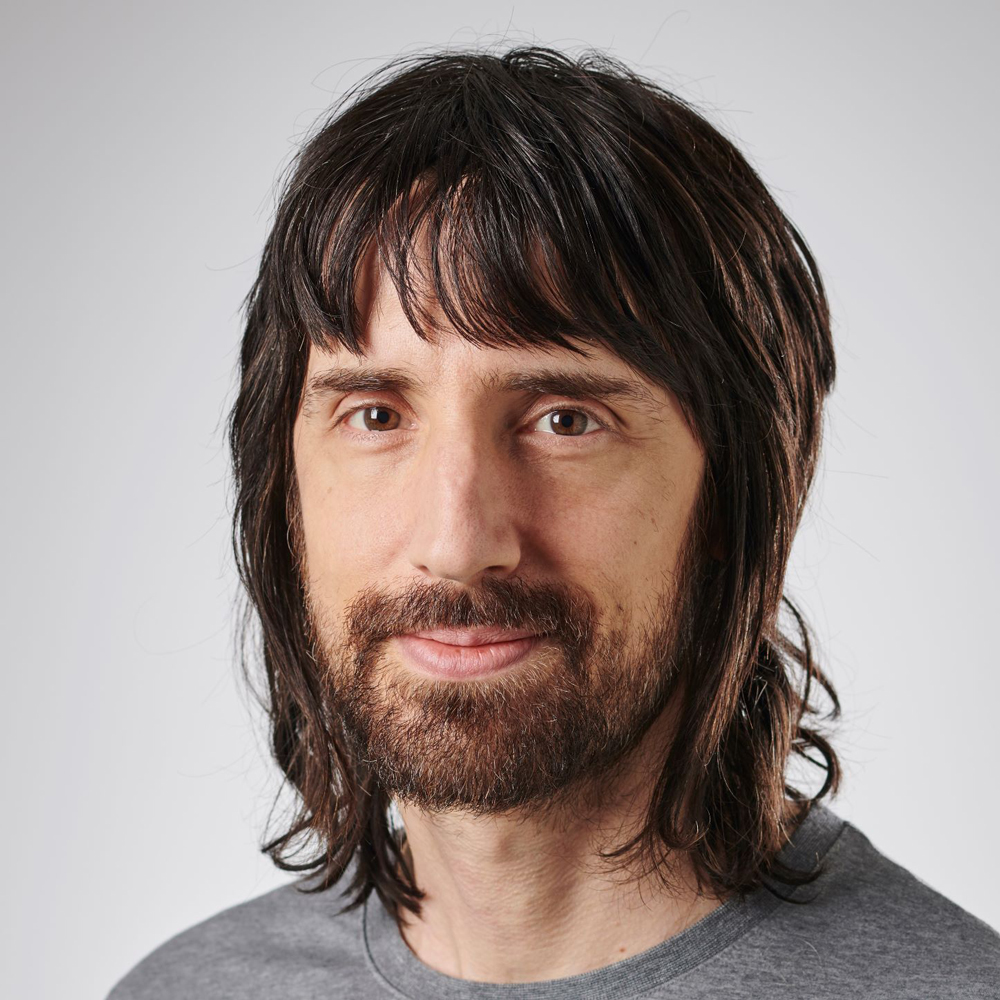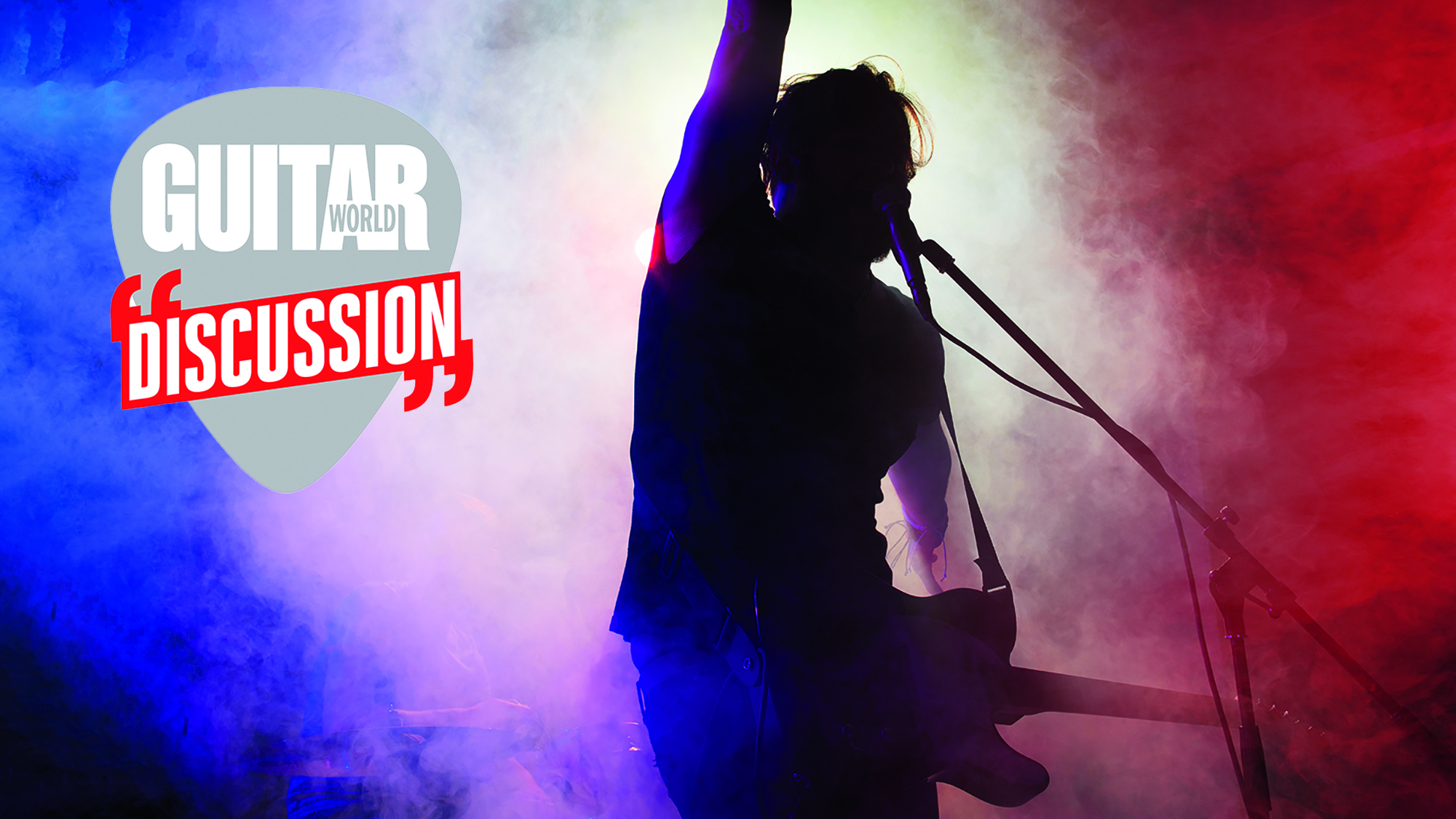Bibi McGill: “Every night before I went on stage with Beyoncé, I meditated until it was just me and the guitar“
The former lead guitarist and musical director for Beyoncé on creativity, playing with Pink, performance tips, and finding her life-shred balance
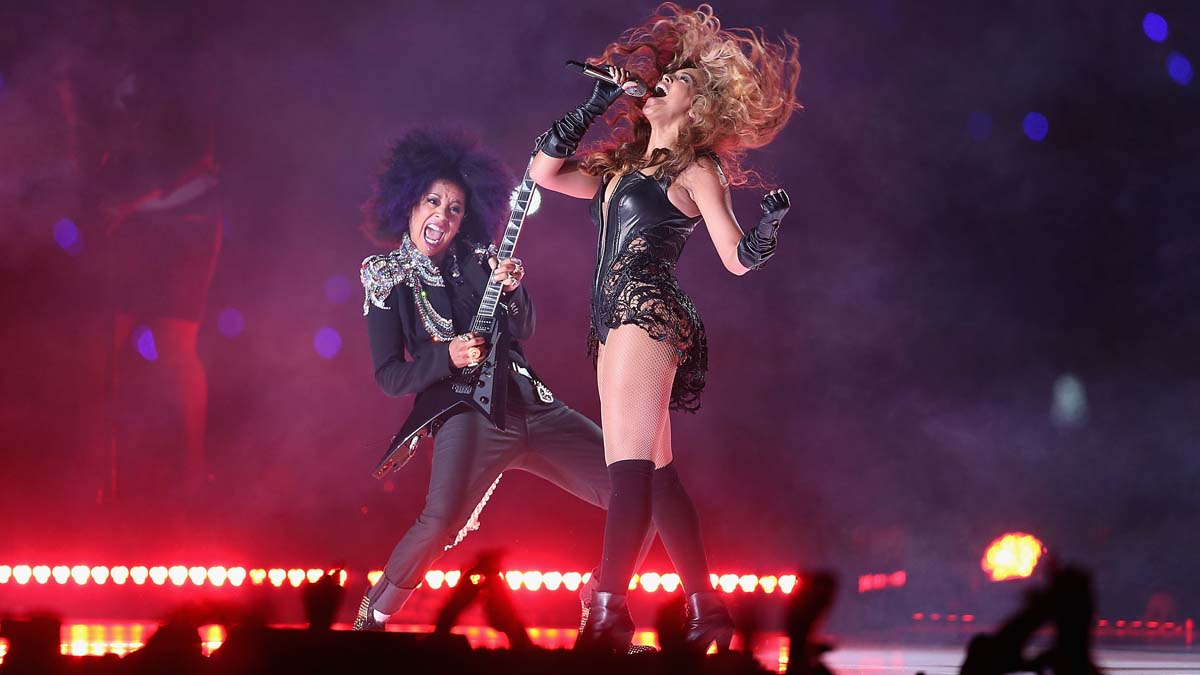
Bibi McGill is at home in Portland, Oregon. Amid the COVID-19 pandemic, gigging is currently not on her schedule. Originally based in Denver, Colorado, she has spent the best part of her working life on the road, first as a guitarist then latterly as a certified yoga instructor.
After moving to LA in the 80s, she played the regular club gig circuit for many years before eventually being plucked from the crowd to join Pink on her rise to global stardom. The moment Bibi stepped foot on stage for her live TV debut with Pink’s band she became one of the most in-demand guitarists among her peers…
I went from having an amp behind me – like when I hit a chord, I felt it – to my amp being about 100ft away under the stage
“Before I could even walk off the stage, my phone was blowing up,” she tells us, referring to her 2001 performance with Pink on MTV’s Total Request Live.
“From that point on, everybody was like, ‘We want that girl with the afro and the tattoos.’ From there, everybody gave me opportunities, and I’m grateful for all of them: Pink, La Ley, Paulina Rubio. And I’m grateful for Beyoncé.”
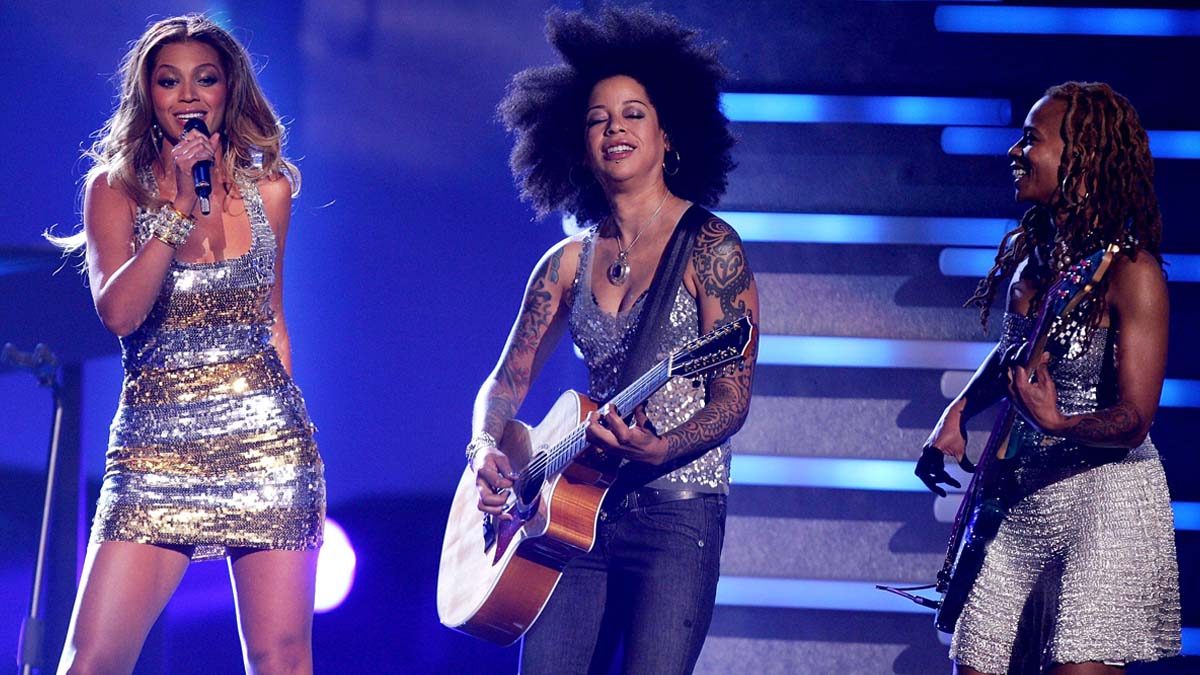
What did your role as musical director for Beyoncé entail?
“I was the MD from 2006 until 2015. It was a very intense role. I had to rehearse the band and do the soundchecks, and make sure everything we rehearsed was carried out on stage. I had to call out cues on stage, speak to the production team under and behind the stage…”
While playing guitar…
Get The Pick Newsletter
All the latest guitar news, interviews, lessons, reviews, deals and more, direct to your inbox!
“Yeah! Talking to people while changing sounds and rocking out. You know, speaking to the video team: ‘Beyoncé’s not in her spot!’ and telling the band to keep playing, like, ‘Keep vamping, keep vamping. Beyoncé’s not here yet. We don’t know what’s going on.’ [laughs]”
Growing up, Randy Rhoads was really the only guitar player I loved
Were you able to get away with using a regular guitar rig?
“In the first year with Beyoncé, I was able to have a ’board with stompboxes. But in the second year, the creative director was like, ‘Nope. It’s a clean stage. We don’t want any gear on stage,’ because they had a lot of dancers and a huge video screen. It’s totally different. I went from having an amp behind me – like when I hit a chord, I felt it – to my amp being about 100ft away under the stage.
“My wonderful guitar tech who I worked with for eight years while I was with Beyoncé, Sean O’Brien, switched me to a Line 6 rackmount [modeller] and, of course, the sound changed a lot.
“You don’t feel the power of the music behind you coming from your own amp, but you get used to it after a while. Then it’s fine. It’s more consistent and the stage is quieter.”
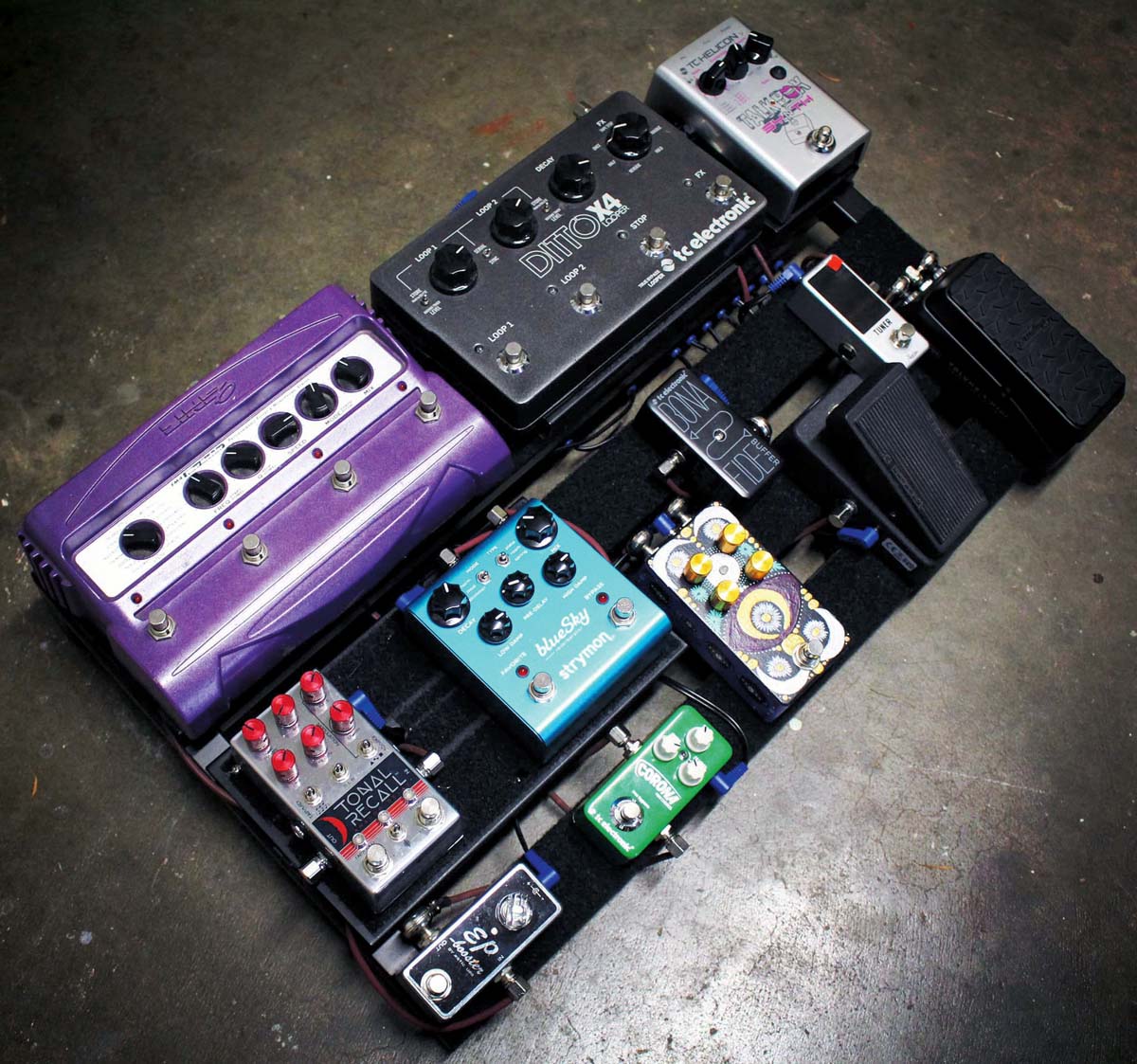
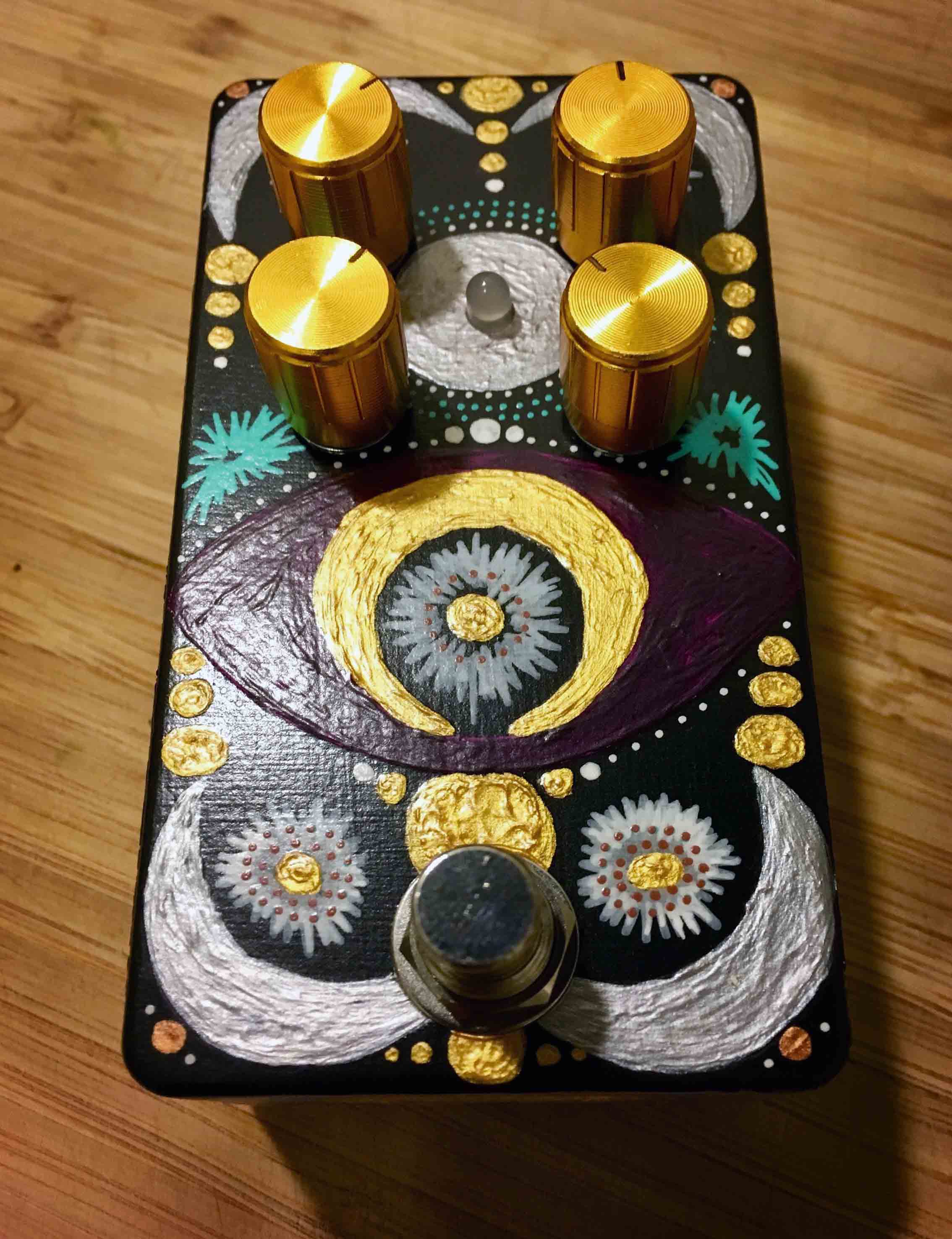
We’ve noticed that you were playing a Jackson Randy Rhoads model while on stage with Beyoncé…
“Growing up, Randy Rhoads was really the only guitar player I loved. When I was with Fender, they owned Jackson, so I was playing Randy Rhoads Jackson models. But I’m more of a Gibson girl. My first serious guitar was an ES-335.
When you think too much, you can mess up and play the wrong thing. Your mind always wants to be in the future or the past. It never wants to be in the moment
“When I got the Pink gig in 2001, I got a Gibson Firebird and an SG. I’ve had two Gibson Custom Flying Vs, an ES-135, a Blues King acoustic, and I’ve got some Taylor acoustics. I love Gibsons but I started going with smaller companies.
“I went with FGN for a while, and just recently I got a call from Teye Guitars in Nashville. They make these incredible custom hand-engraved, hand-inlaid guitars. They’re works of art but they play and sound great.”
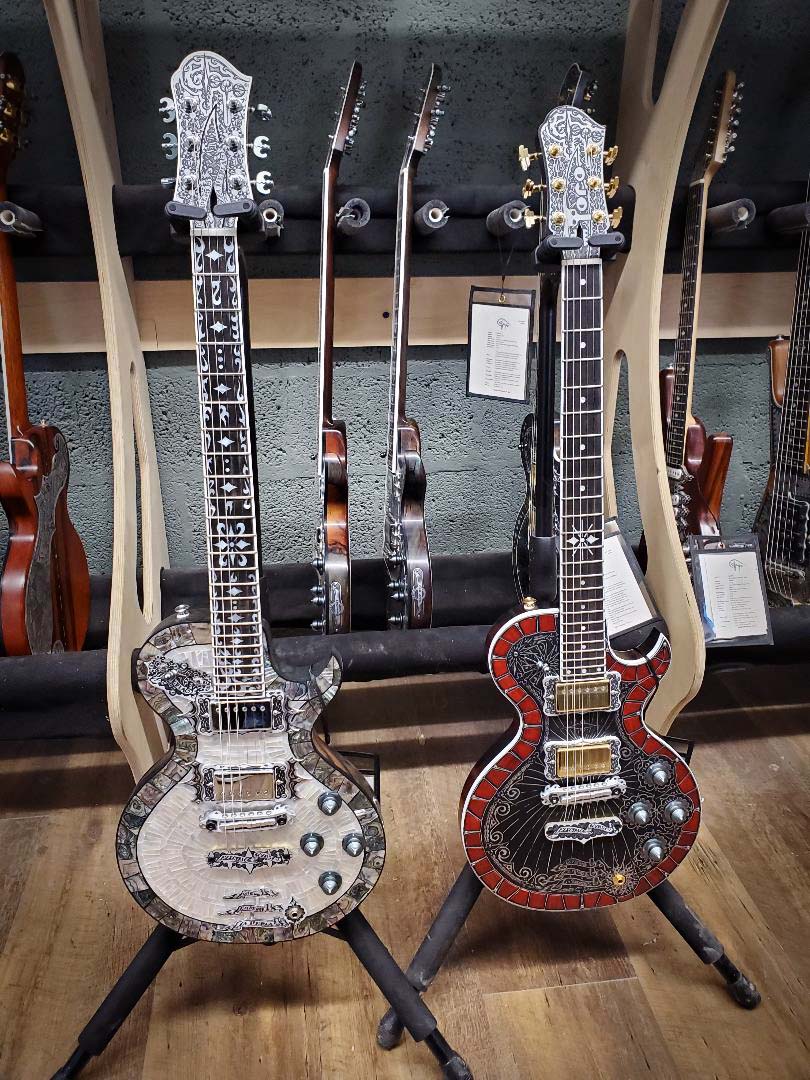
How did you approach the Beyoncé performances in terms of mindset?
“Every night before I went on stage, I did this little ritual, which was like a meditation with the intention of taking myself out of my head and removing everything that was around me until there was just me and the guitar. When you’re meditating, it’s about slowly removing yourself from the attachments of the mind.
“When you think too much, you can mess up and play the wrong thing. Your mind always wants to be in the future or the past. It never wants to be in the moment. But when you’re in the moment, you’re not thinking about the past or the future. You’re in it. And that’s what meditation is: just being.”
How does being more in the moment help you connect with others?
“Getting into that space is what allows me to exchange energy not only with the audience but also with the people I’m on stage with. Being in that state and in the present moment, there’s an incredible exchange of energy with the audience that you can’t really feel if you’re in your head.
“It’s powerful to be playing the guitar in a way that I’m almost not in control of the things I do with my facial expressions or how I move around – it’s like I’m not even me. And then I see and feel the energy of the audience.
“They give that energy back to me and I give it to them and they feel it. It’s like this circular receiving-giving-receiving and it works you into an upward spiral of bliss. It’s beautiful.”
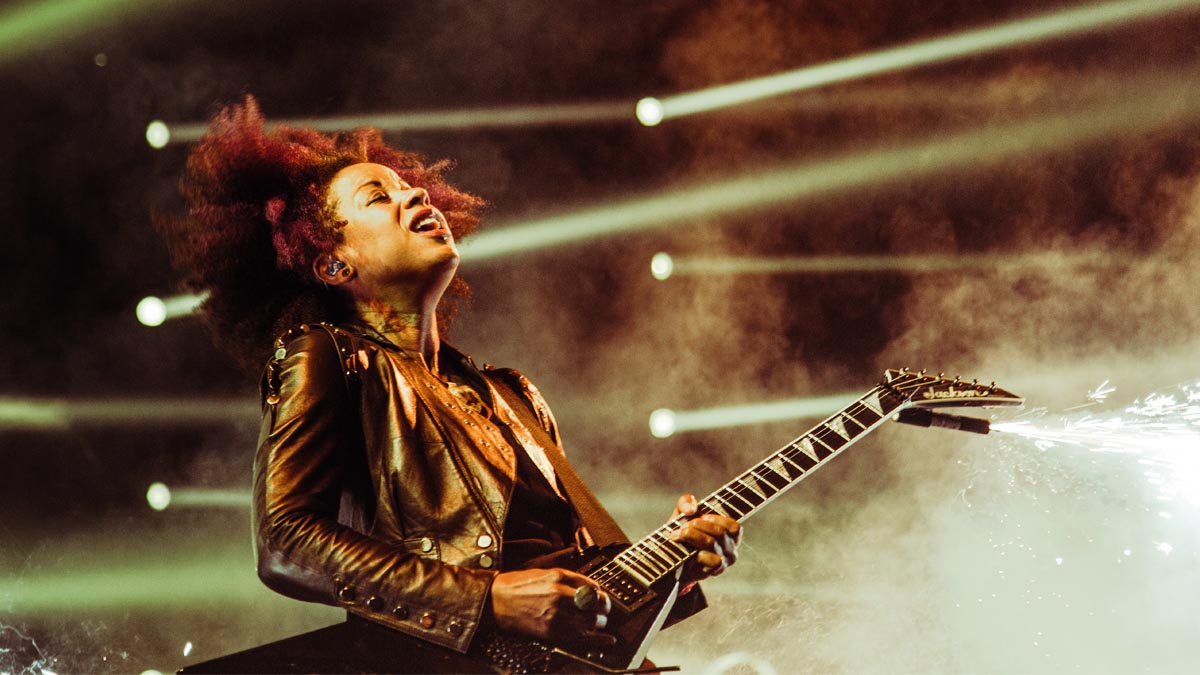
Your performances with Beyoncé must have been hugely inspiring for others…
“I know a couple of women who were teenagers when I first started to play with Beyoncé. They’d write and tell me, ‘You inspire me so much,’ and they’re huge right now. That’s pretty amazing. One goes by the name of Juno, or Juno the Artist. Juno’s a friend of mine.
“And the other – Francesca Simone – was a guitar player for a short time with Beyoncé after me. She wrote me saying, ‘One day I’m going to be just like you,’ and she went on to do the [Beyoncé] Coachella show. Isn’t that incredible?”
What advice would you give to up and coming guitar players?
“Music is there to give people a way to channel their creativity – hopefully in an authentic way. It’s there to channel creativity and love and positive things, or even negative emotions. It’s there for healing.
Don’t allow society and all the commotion around us to shape you in any way that is inauthentic or different from who you really are
“So the advice I’d give to anybody – guitarists or any musicians – is to just be freakin’ real. Don’t allow society and all the commotion around us to shape you in any way that is inauthentic or different from who you really are.
“We have to remain pure and sincere. We need to be who we really are. Society and the world tries to tell us, ‘You have to be this way in order to be accepted or liked,’ or ‘You have to do this and wear this and act this way in order to be approved of,’ and it’s all lies. Think for yourself. Be true to yourself. Be real.”
When and how did your career take off?
“It was in the late 90s. After years of pounding the pavement in California playing all the clubs, I thought, ‘This isn’t working.’ Every band I was playing in were like, ‘We’re almost going to get a record deal.’ You know? That’s the stories I got told.
“I just thought, ‘I’m done playing with five bands that are all supposed to get a record deal. I’m starving.’ So I made a decision: I am not going to play with anyone unless I get paid. And in less than a month, I got a call to audition with Courtney Love.
Whether I’ve been playing at an amateur level or at a high level, there have been times when I’ve not wanted to listen to music because I just wanted peace
“I was waiting for her to figure it out when I got a call from Mick Jagger’s manager saying, ‘Hey, Mick Jagger wants a female guitar player, so we’ll call you when he gets back in the States.’ So I’m sat waiting, thinking, ‘That would be great, but I need to eat and pay my bills.’
“Then I got a call out of the blue from this guy who never gave me any jobs before. He said, ‘Hey, we’re going to uproot your schedule a little bit. Next week you’re going to fly to New York and play with Pink on MTV TRL. Then you’re going to play on Saturday Night Live. Then you’re going to fly to LA and play on Jay Leno’s show. Then you’re going to play on Dick Clark’s New Year’s Rockin’ Eve.‘”
“I was like, ‘What are you talking about?’ I’d never met Pink. I’d never auditioned for her. I had a short conversation about what I was going to do and I got off the phone thinking, ‘This is not going to happen,’ but in less than a week, I was on a plane flying to New York. And a few days later, I’m on MTV TRL.”
As a working musician, how do you find balance in life?
“Whether I’ve been playing at an amateur level or at a high level, there have been times when I’ve not wanted to listen to music because I just wanted peace. I’ve been around musicians who tour for nine months then they come off the road and they’re all over the place jumping into every band, practising and shredding.
I was on stage teaching masterclasses with my guitar heroes and then within weeks of being home, there’s coronavirus
“Okay, if that’s who you want to be and it works for you, great. But when I come off tour, I want to go kayaking, I want to go camping, I want to hang out in the garden, I want to do other things.
“There are other things in life than just the guitar. There are beautiful things in life that people are missing out on. There’s knowledge and wisdom that you can absorb and apply to your life in order to nourish yourself, rather than just trying to be noticed and trying to make it.
“You can have all the fans in the world, but what’s the point if you don’t feel good? It can’t all be outwardly. You’ve got to take care of your body and mind. In order to be whole, you need to take care of the whole being.”
Have you felt like making music recently, despite what’s going on?
“There’s a time for everything. It’s okay to step down and focus on other things in your life when you need to. Everything doesn’t have to be about the guitar and music. But when you’re ready to pick it back up and be creative, honour that, too.
“Some musicians here in Portland – Shantala – called me and said, ‘Bibi, all of this has really inspired us, so we wrote a song we’re going to record and we want you to play on it.’ I’ve toured with them in the past and our last tour got cancelled because of COVID-19.
You can have all the fans in the world, but what’s the point if you don’t feel good?
“So I went to the session and I was so inspired by just being in their presence and playing guitar on the song, and by what we came up with, that by the time I went home I felt completely elevated.
“It fuelled that dim flame of creativity and art that had been pushed down by everything that’s going on. I went by yesterday and listened to the track and the three of us were just tearing up by the power in the music we had created.”
So far, 2020 has been both incredibly eventful and non-eventful…
“I started 2020 off on a high. At the very beginning of the year, Tom Morello asked me to lead a guitar camp with him and some of the other guitar heroes I looked up to when I was learning to play, like Nuno Bettencourt from Extreme and Vernon Reid from Living Colour.
What’s important is my life. And being free. And not being harassed and controlled by the government and evil forces. It’s a crazy world we live in
“So I was on stage teaching masterclasses with my guitar heroes and then within weeks of being home, there’s coronavirus. It’s like, ‘Okay, well, how serious is this?’”
What would say is really important to you as a musician?
“I’m a pretty simple person. People think, ‘You played with Beyoncé, you must have lots of fancy things,’ but I live very simply. That’s what I like. I have a small and simple temple of a home and a garden. I don’t have a lot of things. They’re not important.
“What’s important is my life. And being free. And not being harassed and controlled by the government and evil forces. It’s a crazy world we live in. It’s been a process of working through all this stuff that’s been going on. It’s a rollercoaster ride.”
Rod Brakes is a music journalist with an expertise in guitars. Having spent many years at the coalface as a guitar dealer and tech, Rod's more recent work as a writer covering artists, industry pros and gear includes contributions for leading publications and websites such as Guitarist, Total Guitar, Guitar World, Guitar Player and MusicRadar in addition to specialist music books, blogs and social media. He is also a lifelong musician.
Ozzy Osbourne’s solo band has long been a proving ground for metal’s most outstanding players. From Randy Rhoads to Zakk Wylde, via Brad Gillis and Gus G, here are all the players – and nearly players – in the Osbourne saga
“I could be blazing on Instagram, and there'll still be comments like, ‘You'll never be Richie’”: The recent Bon Jovi documentary helped guitarist Phil X win over even more of the band's fans – but he still deals with some naysayers




